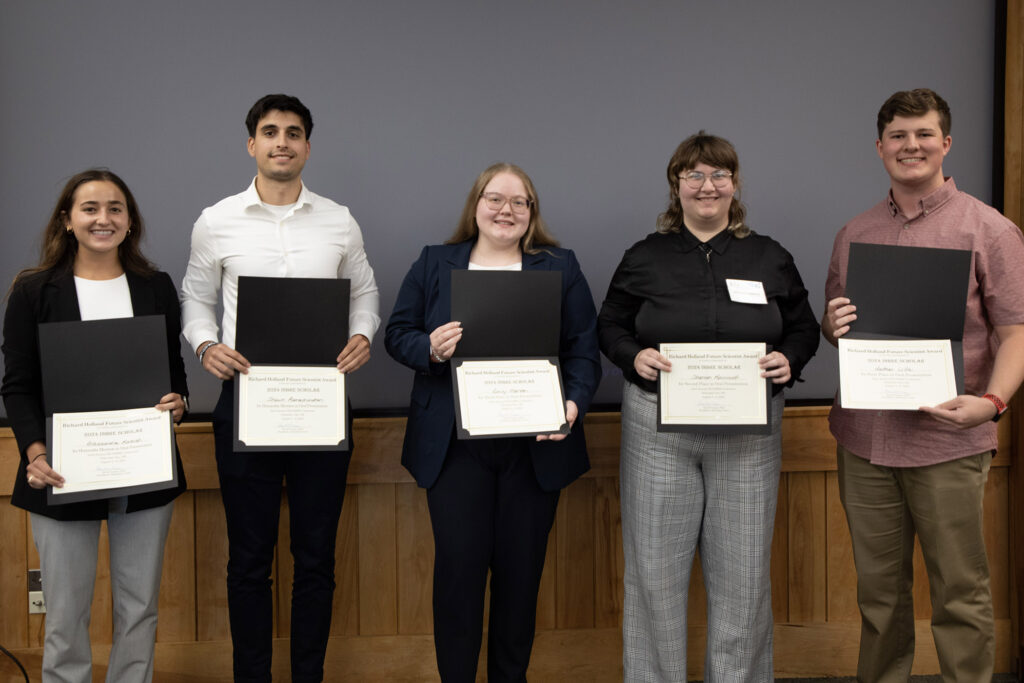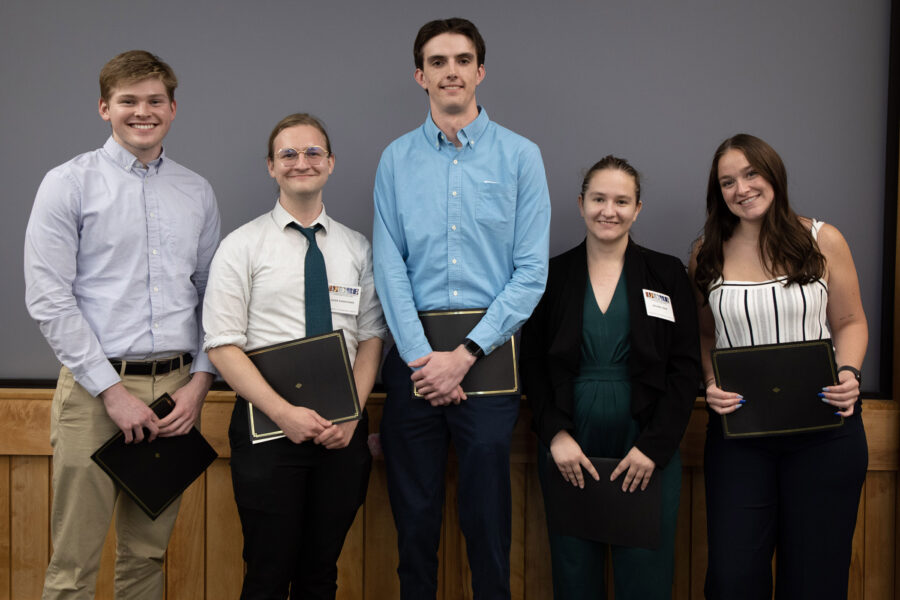Capping a two-day conference, the Nebraska Institutional Development Idea Networks of Biomedical Research Excellence Program (INBRE) presented 10 undergraduate students from six Nebraska universities with the 2024 Richard Holland Future Scientist Awards from Nebraska Cures.
The students received cash awards totaling $5,000 in recognition of their research work during the summer INBRE program. The awards were presented by David Crouse, PhD, president of the board of directors of Nebraska Cures and one of UNMC’s co-investigators of the original INBRE grant establishing the Nebraska program in 2001.
The awards are named in honor of the late Richard Holland, an Omaha philanthropist and longtime supporter of research. This is the 15th year for the awards.
The students were judged in two categories. Awardees included:

Oral presentations:
- Nathan Lilla, University of Nebraska at Kearney
- Shannon Kennicutt, Wayne State College
- Emily Merten, College of Saint Mary
- Alesandra Kakish, Creighton University
- Shawn Ramachandran, Creighton University
Poster presentations:
- Emma Foley, Creighton University
- Noah Shackelford, University of Nebraska at Kearney
- Shyanne Urbin, University of Nebraska-Lincoln
- Jaden Nienhauser, University of Nebraska at Omaha
- Jeff Zimmerly, University of Nebraska at Omaha
Paul Sorgen, PhD, who oversees the INBRE program and is the principal investigator for the $16.2 million grant funded by the National Institute of General Medical Sciences of the National Institutes of Health, called the conference a great culmination to the summer program.
“It has been so exciting to see our scholars work come together over the course of the summer,” Dr. Sorgen said. “Our entire cohort of more than 60 INBRE scholars demonstrated both their ability and their passion for science with their research work.
“We also are thankful for Nebraska Cures’ support of this program and recognition of our top scholars’ work.”
Established in 2001, the INBRE Scholars program was created to expose students to serious biomedical research and build a statewide biomedical research infrastructure between undergraduate and graduate institutions.
The INBRE scholars enter the program after completing their sophomore year of college upon recommendation of their college professors. It is a two-year comprehensive training program to prepare the students for graduate school.
